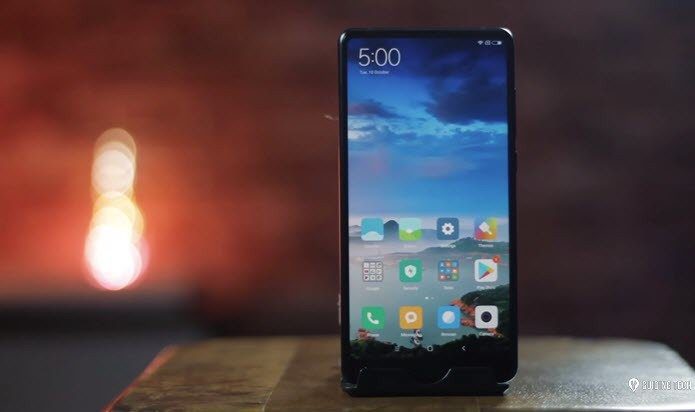The event was about the Lumia 640 and Lumia 640 XL, Windows 10 (with the focus on its mobile version) and some interesting new stuff (like the Universal foldable keyboard). Both the Lumias look beautiful and feel sturdy like most other Lumias. Windows 10, the OS that Microsoft is counting on for its ‘One Microsoft’ vision has been the talk of tech town since it was shown off. Of course, its preview not being available for some important Lumia devices has also been the talk of tech town, but I digress. While listening to Stephen Elop talking enthusiastically about the new devices and Windows 10, I couldn’t help but wonder if this enthusiasm would translate to a radical change in the Windows Phone sales when the new flagships with Windows 10 come out starting this April. Will Windows Phone take a leap towards a bigger share of the market, with its promise of offering a truly uniform experience across the Windows platform? Will you finally start seeing Lumias in abundance (like it was here) all over the world? We’ll talk about all that but let’s begin with the two new devices that were shown off today.
Lumia 640 and Lumia 640 XL
If I were to summarize the Lumia annoucements in two words, it would be ‘budget’ and ‘work anywhere productively.’ That’s what Microsoft seemed to focus upon repeatedly during its presentation. I am glad they decided to narrow down the USP of their devices and make sure everyone gets what purpose these two Lumias will solve, instead of going on a spec-comparison rampage with other phones. They could have done that actually, considering the specs are impressive for the price at which these devices are being offered. The Verge has a rundown of all the hardcore technical details for the geekier ones among you. Let me talk about my first impressions after using the devices for a good few minutes at the demo zone. One of the things that impressed me about the bigger Lumia 640 XL (yes, I got to play with that first) was the way it felt in my hands: Light, and yet a good grip with a premium feeling. Unlike the iPhone 6 Plus, which feels great but also gives you this nagging feeling of it slipping out of your hands the minute you get distracted, this one sent none of those chills down the spine. The Lumia 640 looks great, especially the blue color. Stephen took a dig at iPhone while showing it off, mentioning that it’s not silver or golden but blue (don’t ask me what I think about that… no, don’t). In my time of playing with both the devices, I found them to be working smoothly without any stutter. Of course, the true test of any smartphone comes after 2-3 months of usage when you’ve got a lot going on it, and that’s when you start seeing the “lags.” But Windows Phone has always fared well in that area, almost like iOS. So I don’t anticipate any major issues on that front.
Focus on Productivity through Office and Uniformity
Microsoft wants you to get actual work done from your Lumias and that’s exactly why you’ll get Office 365 Personal free for a year with the devices. MS officials spent a lot of time on the stage showing why they think Office on your mobile is the best and how easily you can switch between devices and continue working on the same Excel spreadsheet without worrying about the challenges of the smaller screen. There is no doubt that Office still rules when it comes to spreadsheets, presentations and documents, and Microsoft wants to entice the professional who has probably switched to an iPhone from his BlackBerry and while he loves taking pictures from his iPhone, he wishes if he could get work done better and faster on it when he’s on the go. Although I don’t dabble with spreadsheets and PPTs often, I do find myself jumping to my starred documents and sheets in Google Drive for iOS now and then. I am yet to take a dive into Office on Windows Phone but if the web version is any indication, it should work smoothly. Microsoft also wants to focus on uniformity of the platform and wants to show the Windows PC user that he/she is better off owning and using a Windows 10 Phone considering the time it’ll save on day to day basis.
Will this Actually Work?
That’s the million dollar question, isn’t it? Will all this actually translate to better sales of Lumia phones? They did sell more Windows Phones in 2014 than in 2013, but it was only a slight rise and definitely below expectations. Will they see much better numbers in 2015? Anyone who’s been following the Windows Phone scene since its inception knows that the devices are excellent when it comes to the hardware and features like camera. But the fact that it was quite a late entrant to the smartphone party, and that the apps lacked in quality when compared with their iOS and Android counterparts, meant that Windows Phone never really took off the way its makers expected it to. Sure, Windows Phones have been selling well in certain regions (India, for instance) but there’s still a long way to go before they catch up with the Apples and Samsungs (if they ever do, that is). I think with Windows 10 on both desktop and mobile, and the focus on Office, Microsoft is headed in the right direction. If they can convince Windows users (which is like 90% of the computer users around the world) to use a Windows Phone, they could gain significant market share. Of course, quality and availability of apps on the platform should still be priority one. If the iOS or Android app continues to be better than its Windows Phone counterpart, then it won’t help. That is something they really got to fix. What do you think? Can they pull this off or have they missed the bus? I’d love to hear your thoughts in the comments section. The above article may contain affiliate links which help support Guiding Tech. However, it does not affect our editorial integrity. The content remains unbiased and authentic.















